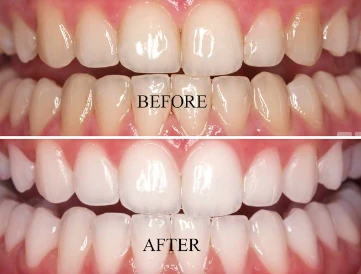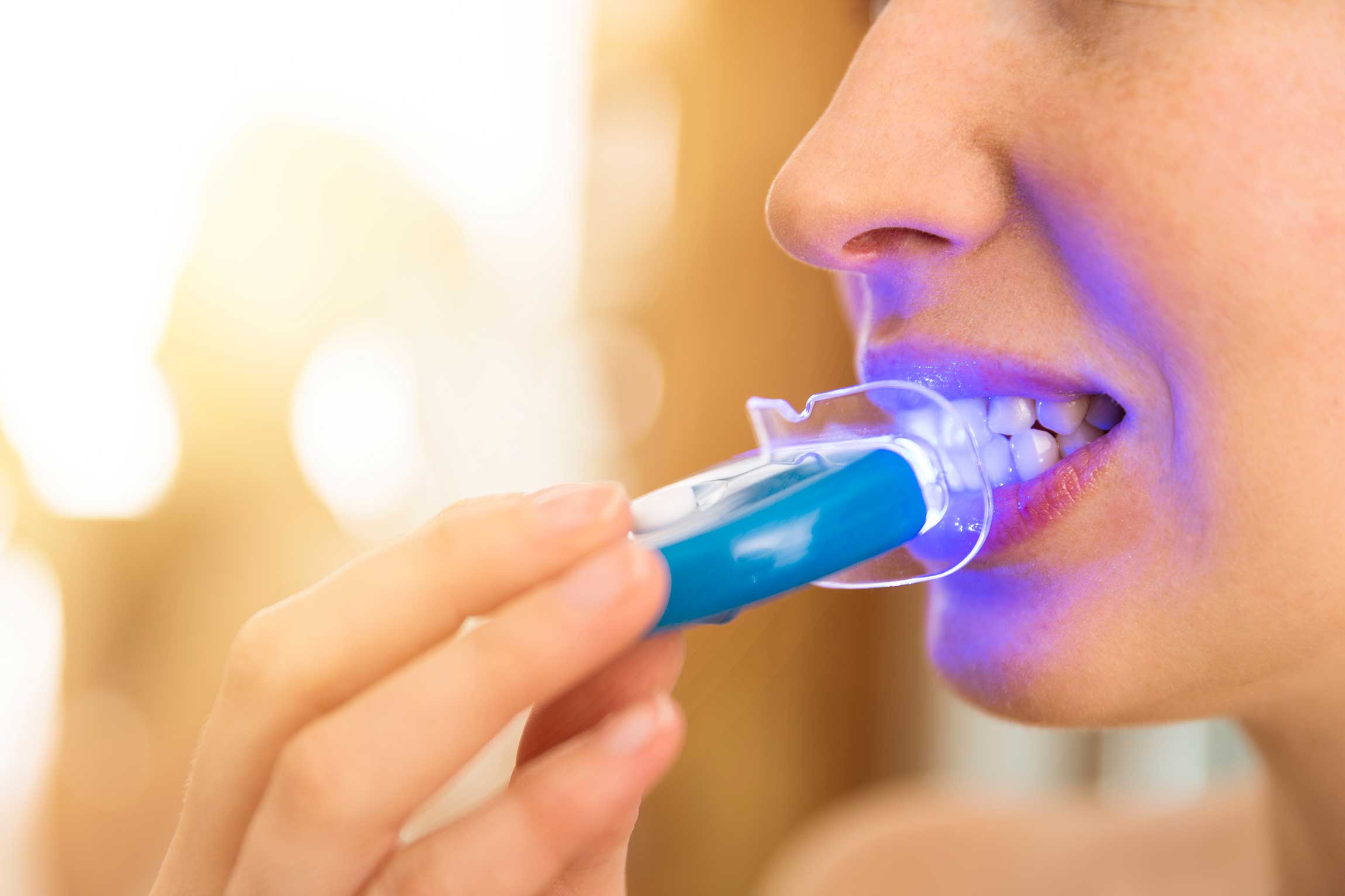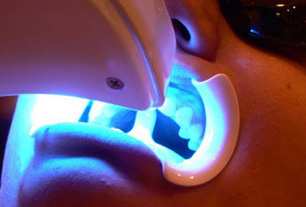Teeth Whitening

Really that much difference?

At home

At the dentist clinic
You might have a lot of questions about teeth whitening.
What is “teeth whitening” ?
Is it safe?
Does it really work?
How is it done?
Does it hurt?
How long is the procedure?
Should it be repeated?
Here are the answers to common questions about teeth whitening.
What is teeth whitening ?
Teeth whitening involves bleaching your teeth to make them lighter. It can’t make your teeth brilliant white, but it can lighten the existing colour by several shades.
Tooth whitening has become one of the most frequently requested dental procedures by the public. The public has come to demand whiter, more perfect smiles and in response many choices for tooth whitening have been made available. These include home-based products such as toothpastes, gels, and films, as well as in-office based systems where products containing highly concentrated bleaching agents are applied under professional supervision. The profession and public have been aware of certain risks related to tooth whitening such as increased tooth sensitivity and gingival irritation. New research has shown that there are other risks such as tooth surface roughening and softening, increased potential for demineralization, degradation of dental restorations, and unacceptable color change of dental restorations. The new research is also focused on optimizing whitening procedures to reduce tooth sensitivity and to increase the persistence of the whitening.
What are the teeth whitening methods?
Teeth whitening can be done at home or at a certified dentist’s clinic.
At home you can use two types of products:
1) Consumer/home type products. These are shipped mostly with low density gels to protect the customers. You can buy them at the stores or online . You can apply it on your own by reading the user’s manual.
2) Professional type of products. These type can be obtained only from a dentist. As the product is high density you need to use it very carefully. Your dentist will explain you all the procedures in details.
At a dentist / hygenist (also called in the office) version is applied only at the clinic by a dentist. The gel has a very high concentration of the required medicine and can harm your gum if not applied by a professional. The procedure is rather short thanks to the acceleration by a special light. This procedure cannot be done at home.
Pros and Cons
At home
+ The cheapest method.
+ You can do it by yourself
– Not very effective
– Might be uncomfortable.
– Takes long time. Sometimes days and nights
– Might harm your gum and tissue
– You might not get a positive result if you made a mistake.
– You may get grades of color if you have not distributed the gel evenly.
At the dentist
+ Very fast. Everything will be finished around 1-2 hours.
+ Relaible. You will get a 99% positive result.
+ Safe. Done by a propfessional, who is trained for that procedure and wathes your mouth through the procedure.
+ Guaranteed result.
– Expensive. Professionals are involved, the gel and sophisticated whitening devices are used.
Is teeth whitening permanent?
Teeth whitening is NOT permanent and should be repeated.
The new color can last from 4 months to 3 years depending on the case. Of course smoking and/or drinking red wine, tea, coffee, etc may affect the duration.
What are the risks of the whitening procedure?
Like any medical procedure, the whitening procedure might be risky if not applied carefully.
Some people’s gums and teeth can be sensitive to chemicals. Especially if you already have sensitive teeth and have pain when you drink something cold / hot. BTW before teeth whitening you have to see a dentist if the pain is insisting. Normally the sensitivity disappears in 1-3 days depending on your teeth.
Especially the home kits may be very dangerous in untrained hands.
It is rather safe to go to a dentist and let the procedure done at the clinic in the presence of trained people.
It is recommended that even if you decide to do it at home, consult a professional first.
Are there any clinical researches?
Many clinical tests are conducted about the results of the teeth whitening procedures.
Here are some examples :
https://doi.org/10.1016/j.jebdp.2014.02.006
